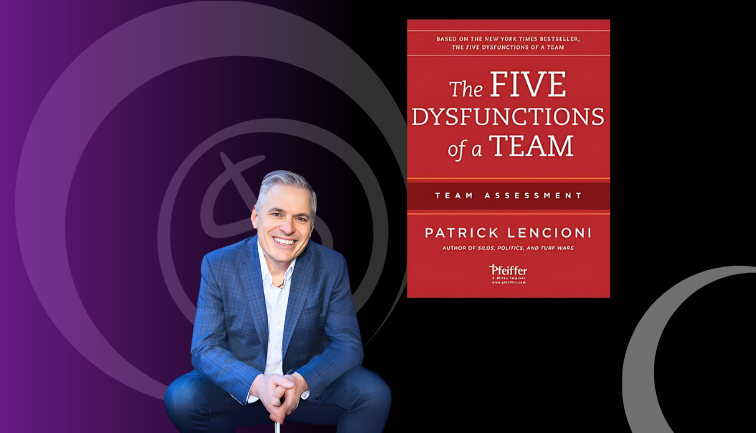Have you worked in a dysfunctional team? I’m betting you have, tell me if I’m wrong.
A great functioning team is more rare than common.
It probably doesn’t help that newer generations are less familiar with picking up the phone to call someone to work out their differences. Text messages don’t cut it.
It might be one bad apple spreading toxic behaviour (very common) or a few people who can’t make it work.
As the leader, you are responsible for identifying dysfunction and nipping it in the bud, fast.
If you don’t, it will grow!
A great foundation for understanding what creates dysfunction in a team and how to resolve it comes from Patrick Lencioni’s book.
Here is an outline of the 5 Dysfunctions and how to fix:
1. Absence of Trust
When team members lack trust, they tend to hide their thoughts and feelings, causing communication issues, conflicts, and reduced commitment to team goals.
How to Fix
- Get to know your team members on a personal level
- Be open and honest with them
- Be willing to listen to their ideas
2. Fear of Conflict
When team members are afraid of conflict, they’re less likely to speak up, even if they have something important to say. This can lead to poor decision-making and a lack of innovation.
How to Fix
- Encourage your team to talk and share ideas, even if they don’t agree
- Make a safe culture where it’s okay to disagree
3. Lack of Commitment
When team members aren’t committed to the team’s goals, they’re less likely to put in their full effort. This can lead to missed deadlines, poor performance, and a lack of accountability.
How to Fix
- Ensure that everyone on your team understands and agrees with the team’s goals
- Once everyone is committed to the goals, they’re more likely to put in their full effort and work together effectively
4. Avoidance of Accountability
When team members don’t take responsibility for their actions and the team’s performance, it can create a culture of blaming others and erode trust.
How to Fix
- Ensure that everyone on your team understands and agrees with the team’s goals
- Once everyone is committed to the goals, they’re more likely to put in their full effort and work together effectively
5. Inattention to Results
When team members are more focused on their own individual goals than the team’s goals, they’re less likely to work together effectively. This can lead to conflict, missed deadlines, and a lack of progress.
How to Fix
- Make sure everyone remembers why the team is working together and what we want to do
This soft skills stuff is not easy.
Interactions between people can be complex and without understanding what’s really going on, you are unlikely to resolve the situation, just make it worse.
If you find that you’ve made changes and things aren’t improving, it might be time to get outside help.
Lloyd
PS – Are you struggling with getting everyone rowing in the same direction? Let’s chat.








